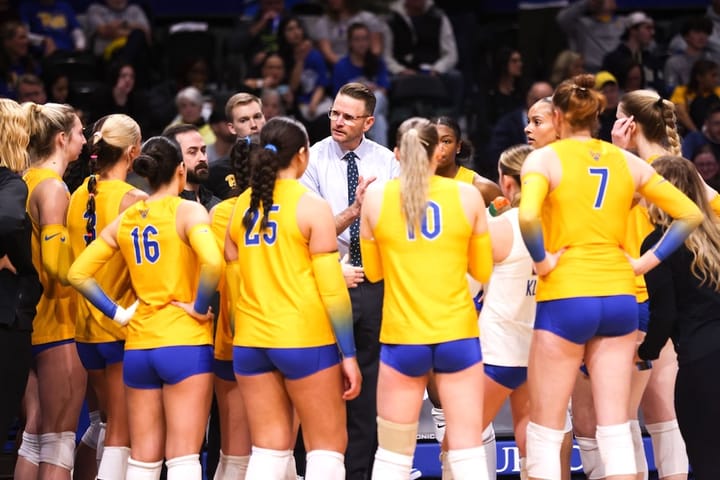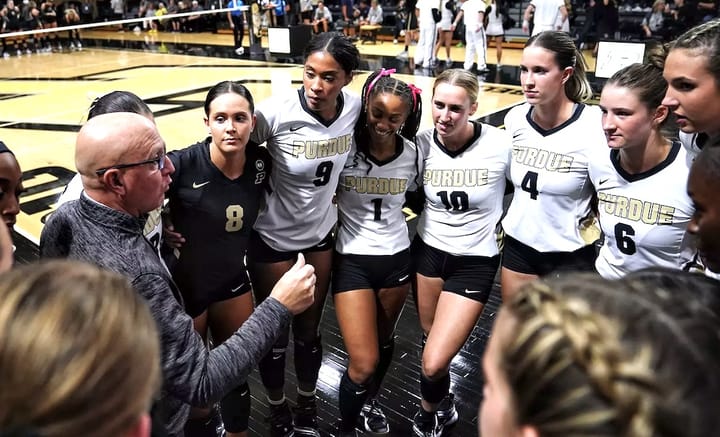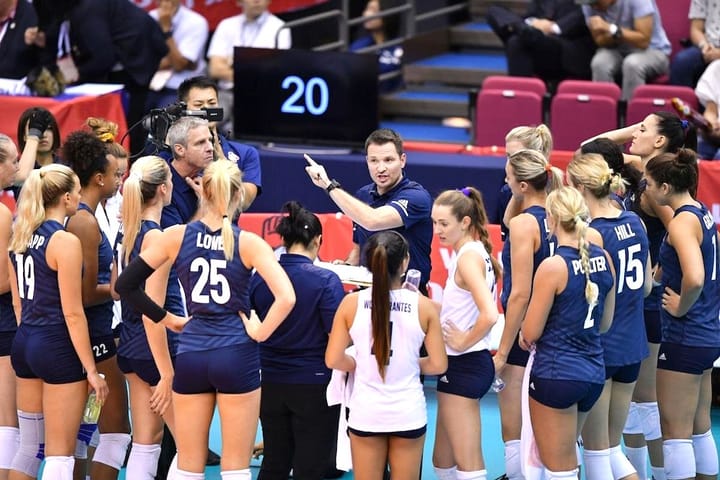19. Russ Rose:'You can't get too high when it's good and you can't get too low when it's not good.'
Normally our intro's are the highlights from a coaches' wikipedia page. But what do you pick with a Russ Rose interview: coached 44 All Americans, 40+ years of head coaching, won 7 national championships? We had the pleasure to have a long call with coach Rose. Hope you will enjoy the interview.
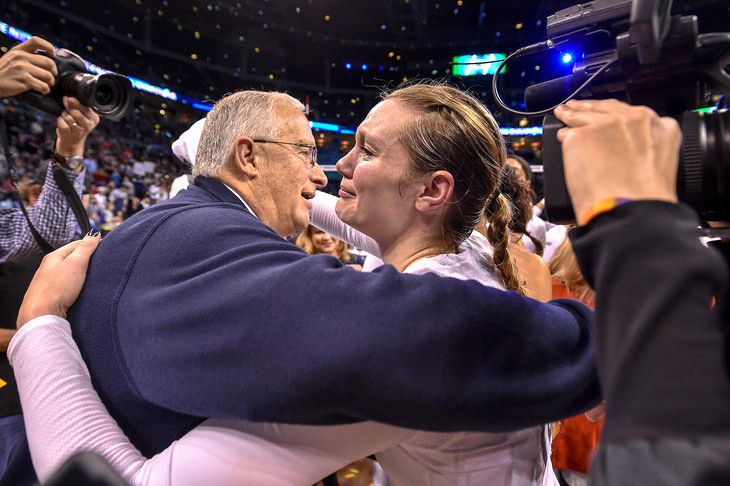
In our call we went all over the place. I should've been a better 'interviewer', but it is fine to loosen the reigns and go with it with coach Rose and just... talk volleyball.
So we will hop around a lot and that is fine, there is a lot of content here.
(5999 words and 7 clips of video edited answers for a total of 25min - the video quality is a bit lower due to bandwidth issues, but the audio is perfect)
A great intro to the interview(so our European readers get a grip on coach Rose's legacy) is this clip that was made a few years ago.
Enter coach Rose.
Coach, tell me more about how you want to coach your team?
I love the men's game and the men's game to me is the highest level of the game being played.
It's the purist game to me as it maintains a more aggressive emphasis on serving and attacking. I don't care that the length of the rally is short, it's demonstrating the game at its highest level.
When we had our best teams at Penn State... I don't exactly recall which stretch of time that was, but I know we won four championships in a row and had a wonderful run.
More to the point I coached that team like a men's team. We trained like a men's team. Systematically I wanted to do things more like a men's team.
I remember a number of years ago, we had come back from our team’s tour in Brazil, when the Brazilian men's team was recognized as one of the top in the world. Bernardino was still coaching the men's team and he allowed us to watch a practice.
Some of the drills that we took from that practice, I brought back and implemented with our women’s. They were different than what people would assume one should be doing with a college women's team.
We adapted a drill where our attackers were hitting balls with no block with good pace at the libero to initiate the drill. Not just to 'develop' range in the defensive player, but just to say, this is how we're starting the drill.
We know that in a lot of sequences in the women's game, coaches don't put that much pressure to get the ball over the net, throwing the ball to start the drill is in some cases way more realistic. That is just one small example.
In the end it boils down to having high quality players of course, if you don't have the quality of players to do things, you just can't do some things. My college coach Jim Coleman use to say to not try to do something tactically that you can’t do technically.
Circling back to the men's game, I watch a great deal of men's volleyball and I mainly watch it to still the hunger I have for our game, I miss some of the parts of the men's game in our women's game, it reminds me of different things that I could implement when I coached men and reflects on the talent base that I have in the gym at the present time.
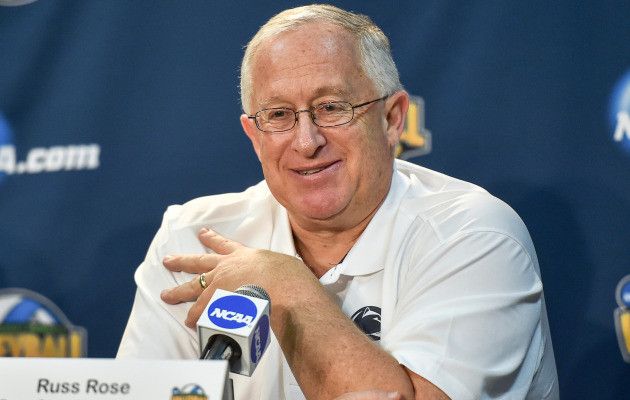
From our talk before the interview and seeing your passion for the game, is there something that stood out to you about your international experiences?
Before the 2008 Beijing Olympic games I was consulting with our men's National team. We participated in a six nation tour in Italy with three matches a day. The teams were Italy, Russia, Brazil, China, USA and I don’t recall the final team.
I was basically recording all of the serves by the players and recorded the velocity and location of the service area as well as where the ball was served. The fact that I was recording all the matches I was present for all of the matches from start to finish.
What stood out to me was that Brazil differed from the other teams during introductions in that every night before they played, when they were introduced....to just see the passion of the players, hugging and kissing each other on the cheek. That was so unbelievable, that intangible. That’s something that's really hard to replicate.
But that is the beauty of our game, it's such an international game, there are all these influences, things to learn, things to observe. We as coaches all want our players to get along but it is near impossible when it is forced.
The last few months we saw a lot of International competitions all with a high quality live stream, also one of the first times we could really check out the time outs...
Yes, the time-outs are interesting.
When coaches talk about training a team and developing a team, I always say: Hey, you don't know how your team is going to play because you can't replicate the stress of an event. You can't replicate pressure. You can't replicate certain things.
And you also can't replicate the emotion and passion of people that really care for each other, that Brazilian cultural thing.
What they're saying in these minimal time outs. Is it substantial? Is it meaningful? Or are they just giving the players a breather, a chance to relax or are they things saying specific technical/tactical things. Is it positive? Is it negative? Is it neutral? Is it fluffy?
What I picked up was that all coaches are different and their timeouts reflected that in a short time frame.
Now I understand that as a coach how you talk and think about the sport is specific. As a player, you're going to respond better to a coach who talks to you in a similar way.
I was a Phys Ed teacher and wasn’t that good of a player in college, I would respond to a coach better who says to me: Hey, you're playing shitty, get in the game and focus on what you need to focus on and stop staring at the chicks in the crowd.
So I wouldn’t need somebody to talk to me about my angle of approach. Coaches are going to be in different camps as well, how they prepare and put things together.
And that's why for me listening and watching is really interesting because it's so different everywhere. It's very interesting watching these different countries. I think it is even funnier that some coaches had translators and who knows what was lost in the translation.
I'm a student of the game making up for the fact that I was a weaker player of the game. :-)
Like the different national teams have their cultural differences, the same goes for how it is in different pro leagues and even specific pro teams, it's a constant adaptation, that is what our job is really about-trying to get the group of individuals to play as one.
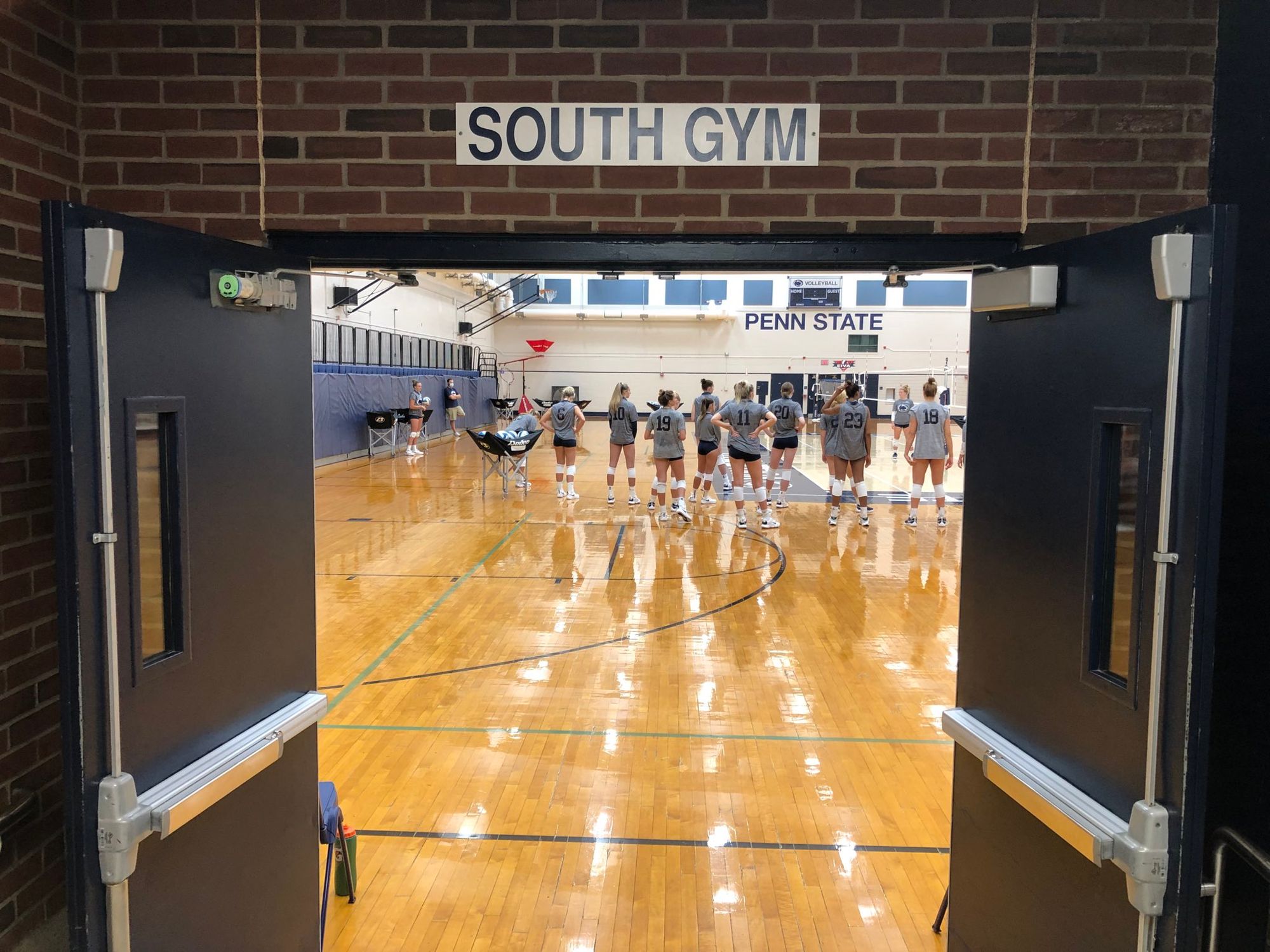
I'm sure you have some great stories around your international experiences also. What is one that stood out to you.
Back in the day, I coached professional men's volleyball in Puerto Rico, I'm talking about 45 years ago now when I was 22.
I went to Puerto Rico because it was wintertime in Chicago. And it was sunny in Puerto Rico. And I had never been there. :-)
I didn't speak a word of Spanish and it was a wonderful experience.
Well, I mean, to me it was great. It was coaching.
I remember matches where people were throwing mangoes onto the court and yelling: 'Gringo, go home'. And me saying in a timeout, which one of you guys is named 'gringo'.
It's a ridiculous story, but it's one that will always be part of who I am.
I think coaching is a long experience. And as I tell my children, not all experiences are good, but they're all valuable.
That is in essence how I look at coaching.
If you needed to describe your style of coaching, with the vast experience that you have about developing your team, how would that sound like?
I always say to them, listen, you have a very small window of time in which you try and be good while you're here. Everything matters and everyday matters.
But it's not life and death.
There are always more important things, but you must be focused on what you're doing on the day that you're doing it. That's all.
And if you have issues that prevent you from being focused on that day, I just need to know ahead of time, because otherwise my assumption is going to be that you're going to come in and give a hundred percent and be ready to go.
If we were going to put coaches in different boxes, you, who is more than qualified to be a coach, it sounds like you would be a technical coach.
I'm an attitude coach.
